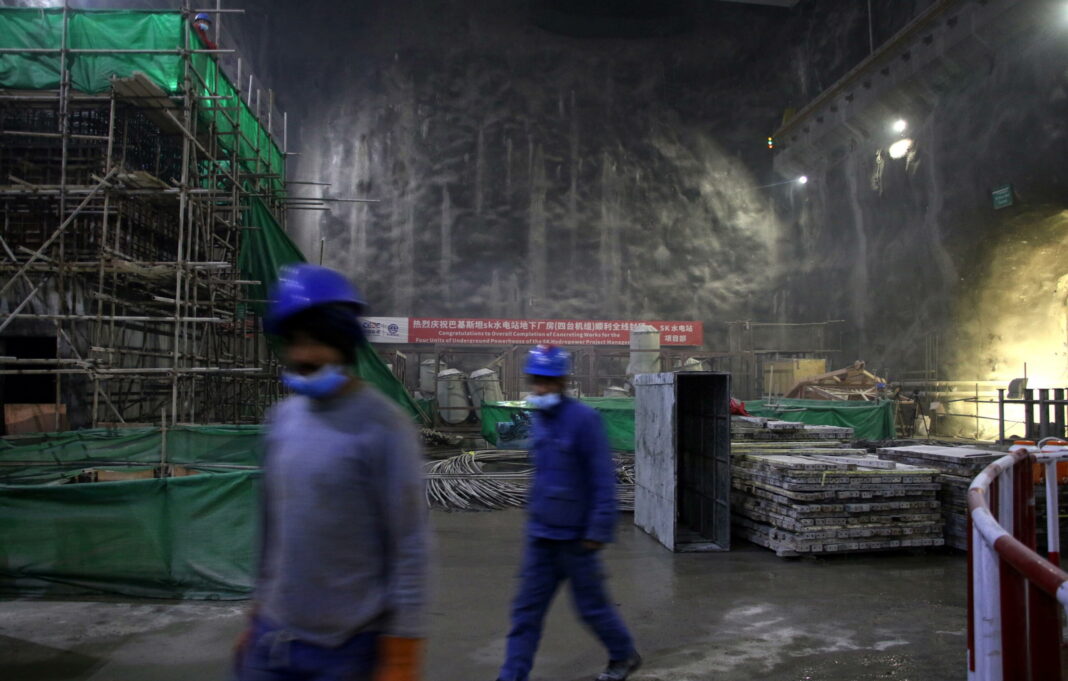China is fast losing its patience over Pakistan’s lackadaisical attitude to finish projects under the China Pakistan Economic Corridor (CPEC), which was ‘officially’ launched in 2015. According to the recent CPEC Authority report, Pakistan could complete only three CPEC projects in Gwadar, Balochistan – which is the focal point of CPEC – having value of over USD 300 million, as “one-dozen projects costing nearly USD 2 billion remain unfinished including water supply and electricity provision.” This has irked Chinese government, which is reconsidering the future of its financial and
manpower investments in Pakistan.
China’s worries
What is more worrying for China is the recent uptick in terror attacks targeted against its nationals, mostly workers and engineers, in different parts of Pakistan. Chinese officials in Pakistan have expressed serious concerns and questioned Islamabad’s inability to protect their nationals after the recent killing of three Chinese language teachers in Karachi. The Karachi University attack was the third terrorist attack on Chinese citizens on Pakistani soil in a year. Senator Mushahid Hussain, Chairman of Pakistan’s Senate Defence Committee recently remarked, “The Chinese confidence in Pakistan’s security system’s ability to protect their citizens and their projects is seriously shaken.”
Adding more to the CPEC conundrum, over two dozen Chinese firms operating in Pakistan have recently warned “that they would be forced to shut down their power plants in May unless payments of PKR 300 billion were made upfront.” More than 30 Chinese companies operating CPEC, including 25 representatives from Chinese independent power producers (IPPs), in various areas including energy, communication, railways and others, recently met Pakistan’s Minister for Planning and Development Ahsan Iqbal to
lodge their complaints over the non-payment of dues. The Shehbaz Sharif-led coalition government is in a crisis mode after these developments and is trying hard to win back Beijing’s trust. Several ministers and government representatives have recently met Chinese officials to reaffirm Islamabad’s commitment to complete delayed CPEC projects and simultaneously expedite development of the second phase.
Pakistan’s new Foreign Minister Bilawal Bhutto Zardari has sought to further strengthen “all weather strategic partnership” with China, including through the “rapid implementation” of CPEC. Prime Minister Sharif has blamed former PM Imran Khan for ruining the CPEC project and assured the Parliament to prioritise the CPEC. These remarks suggest that the new government in Pakistan will enhance ties with China and may come up with a fresh roadmap on the CPEC. However, it will not be an easy task considering most CPEC projects were almost stalled in the last three and half years. Restarting incomplete projects will require more capital, time and manpower, which China seems reluctant to provide anytime soon.
Key factors
Several factors have contributed to the delay in CPEC projects in the last three and half
years. It has been majorly hit on three fronts—economic, political and strategic. Pakistan’s economy is in deep trouble with the US dollar reaching 190 Pakistani rupees, inflation in double figures, rising energy prices, low growth rates and the federal budget trade-deficit crossed PKR 4 trillion in March this year, first time ever in the country’s history. All this is happening when the International Monetary Fund (IMF) has put on hold its USD 6 billion bailout programme to Pakistan for not meeting its conditions. Under these circumstances, China fears that its investments in Pakistan will not result in any profits because Islamabad will not be able to return Chinese financial loans and interests anytime soon. Consequently, CPEC projects are likely to face more delays and extended deadlines in the future.
Politically, Pakistan is in a deep mess after the Imran Khan government was ousted from
power last month. The 11-party coalition government is standing on a weak plank because it is a conglomeration of divergent political ideologies and not really a united force. It may fall anytime, even before the 2023 General Elections in Pakistan. Therefore, the Sharif-led government is not in a position to take big policy measures to sort out CPEC-related issues, besides a few small steps, but mostly empty rhetoric. On the strategic front, Pakistan fears that its burgeoning bilateral ties with China have raised eyebrows in the US. More importantly, both Beijing and Islamabad are feeling insecure over Washington’s emerging role in the Indo-Pacific region. As a result, Pakistan may consider improving its ties with the United States after the three horrible years of US-Pak relations under the PTI government. China will be alarmed in case Pakistan tilts more towards the US as that might impact CPEC progress and other Chinese investments in Pakistan.
Beijing is facing an uphill task to revive the CPEC project in Pakistan because its failure, as the ‘flagship’ project of the BRI, is not an option for the Chinese authorities since it will directly impact President Xi Jinping’s international image. Therefore, China will pressure Pakistan to resume the work on incomplete CPEC projects or pay penalties. Pakistan has
already fallen too deep into the Chinese “debt-trap,” and its economy is in a deep mess. According to the IMF, Pakistan owes USD 18.4 billion or one-fifth of its external public debt to China. Consequently, the Sharif-led government will fail to provide any solution to Pakistan’s economic turmoil and may end up increasing dependency on China.
21 June 2022

